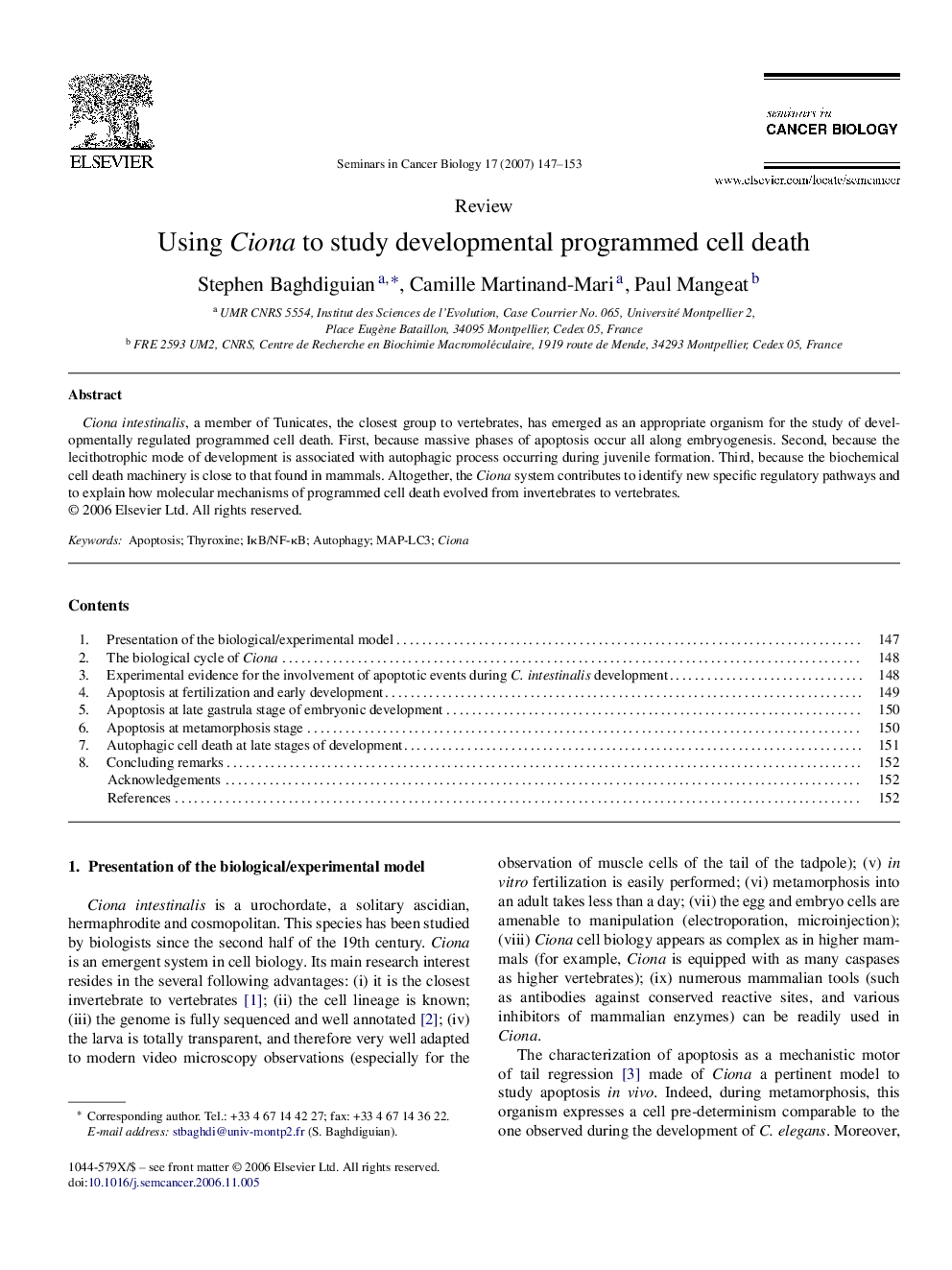| Article ID | Journal | Published Year | Pages | File Type |
|---|---|---|---|---|
| 2023854 | Seminars in Cancer Biology | 2007 | 7 Pages |
Abstract
Ciona intestinalis, a member of Tunicates, the closest group to vertebrates, has emerged as an appropriate organism for the study of developmentally regulated programmed cell death. First, because massive phases of apoptosis occur all along embryogenesis. Second, because the lecithotrophic mode of development is associated with autophagic process occurring during juvenile formation. Third, because the biochemical cell death machinery is close to that found in mammals. Altogether, the Ciona system contributes to identify new specific regulatory pathways and to explain how molecular mechanisms of programmed cell death evolved from invertebrates to vertebrates.
Related Topics
Life Sciences
Biochemistry, Genetics and Molecular Biology
Biochemistry
Authors
Stephen Baghdiguian, Camille Martinand-Mari, Paul Mangeat,
